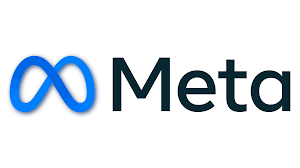# Meta's AI Training Plan Sparks Controversy Over EU User Data
Meta has announced its plan to start training its artificial intelligence (AI) models using public data from European Union (EU) users starting May 27, without their explicit consent. The move has sparked outrage among privacy advocates, who argue that the company is violating EU data protection laws.
### Background and Context
In April, Meta revealed plans to use public data from adults in the EU for AI training, following a pause last year due to concerns raised by Irish regulators. In June 2024, the social media giant announced it was delaying the training of its large language models (LLMs) using public content shared by adults on Facebook and Instagram.
### Meta's Response
According to Meta, the company needs to train its AI models on relevant information that reflects the diverse languages, geography, and cultural references of EU users. The company initially planned to use data from EU individuals who have publicly stated their interactions with Meta products and services.
"Starting this week, EU users will receive notices about their data being used to improve AI, with an option to easily object at any time," said a Meta spokesperson. "We do not use people's private messages with friends and family to train our generative AI models."
However, the company's approach has been criticized by Austrian privacy group noyb (None of Your Business), which claims that Meta is relying on an alleged "legitimate interest" to access EU user data without explicit consent.
### noyb's Response
In a statement published on its website, noyb said: "Meta has announced it will use EU personal data from Instagram and Facebook users to train its new AI systems from 27 May onwards. Instead of asking consumers for opt-in consent, Meta relies on an alleged ‘legitimate interest’ to just suck up all user data."
The group argues that this approach undermines key GDPR rights like data access, correction, and deletion. "If injunctions are filed and won, Meta may also be liable for damages to consumers, which could reach billions," said noyb.
### Max Schrems Weighs In
Max Schrems, a leading advocate on EU data protection issues, said: "This fight is essentially about whether to ask people for consent or simply take their data without it. Meta starts a huge fight just to have an opt-out system instead of an opt-in system."
Schrems notes that even if only 10% of users consented, that would be enough to train effective AI models, especially for EU languages. He also pointed out that other AI providers do not use social network data and generate better models than Meta.
### GDPR Solution
The Austrian privacy group believes that the solution is straightforward: ask users for opt-in consent to use their personal data for AI training. "This is neither legal nor necessary," said Schrems.
Despite Meta's claims, even if just 10% of users consented, that would be enough to train effective AI models, especially for EU languages. Most competitors like OpenAI or Mistral succeed without access to social media data, proving Meta doesn't need to use the personal data of everyone who’s used Facebook or Instagram over the past 20 years.
### Conclusion
Meta's plan to start training its AI models using public data from EU users starting May 27 has sparked controversy over data protection and consent. While the company claims that its approach is necessary for AI development, privacy advocates argue that it undermines key GDPR rights and ignores the need for explicit opt-in consent.
